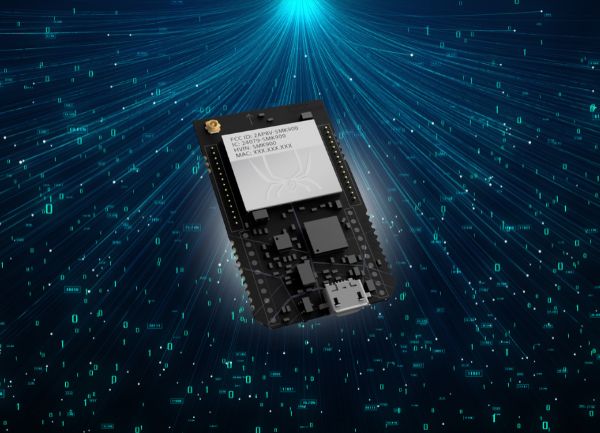Portia :
PORTIA radio transceivers provide an extremely high wireless network range. Radios use the proprietary SPIDERMESH technology, a cooperative mesh wireless protocol developed by Smartrek Technologies, to achieve this.
This protocol provides synchronous communication between the links to mitigate network contention issues. This strategy allows PORTIA radios to offer a connectivity solution for the most challenging applications.
Each of the radios can be configured either as a gateway or as a node. Gateways coordinate wireless data exchanges and act as a bridge between the SpiderMesh network and a host such as a computer, tablet, or internet router.
The nodes act as repeaters within the SpiderMesh network. Data transfer is bidirectional, allowing for control and/or monitoring of digital or analog external modules. Activating a link in the field only requires the node to be on the same radio frequency channel as the network during deployment. This considerably reduces installation complexity as no technical knowledge is required for its use.
Serial Interface :
PORTIA radios have 2 serial communication modes to interact with the mesh network. The first mode is transparent, and all data received on the serial port of a node will be transmitted to all other nodes, thus creating a virtual serial port connection for all the devices on the Mesh network.
The second mode uses a programming interface (API). Packets transmitted on the serial port contain a unique address which allows you to specify the recipient of the API command.
Commands allow you to configure each node in your network, perform OTA (over the air) updates, execute sensor acquisition, and perform control sequences.
Virtual Machine and Over the Air Updates:
PORTIA radios feature an embedded user-programmable virtual machine allowing for OTA (over the air) firmware updates. This application-specific user script controls the internal modules of the PORTIA radio and eases interfacing with external sensors without needing supplementary glue logic or a supplementary microcontroller. The execution of the virtual machine is made possible by sharing the resources of the main processor used for wireless communications providing the user with a low-cost, low-effort solution for quick sensor design.
Hardware:
PORTIA radios are equipped with a serial port, digital and analog inputs/outputs, I2C and SPI communication ports, all accessible from the virtual machine. For tasks requiring real-time execution, a co-processor is made available in addition to the main processor, which can be programmed directly by the user.
